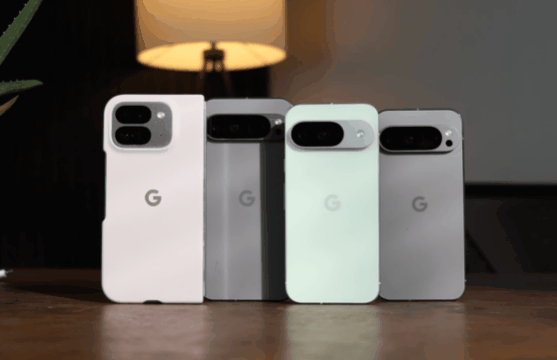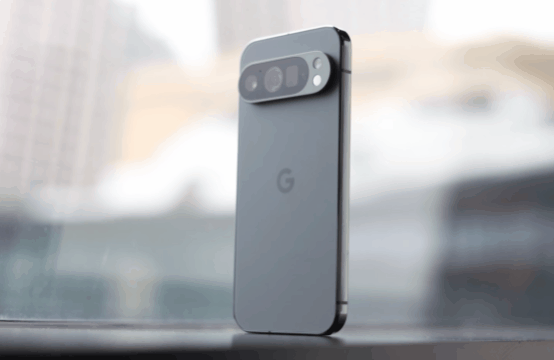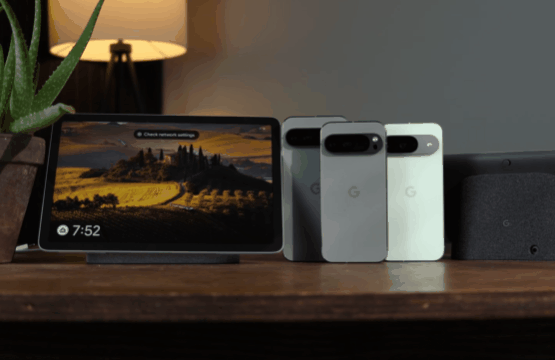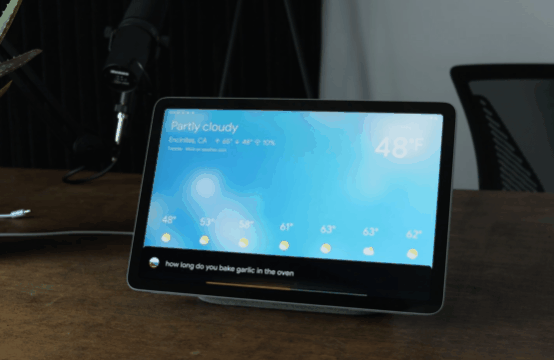Google's Ecosystem: Game-Changer or Just Hype?

PHOTO: Mike O'Brien
When it comes to tech ecosystems, Google plays by a different set of rules. Unlike Apple’s iPhone 16 and Samsung’s latest devices, which keep users locked into their hardware, Google focuses on software, services, and seamless integration. From YouTube and Gmail to Google TV, smart home devices, and accessories, the Google ecosystem promises flexibility and convenience that brands like Xiaomi and Samsung don’t always offer. But is it actually worth investing in, or are you better off sticking with a more traditional setup? Let’s break it down.
RELATED: Smart Home for Beginners: Easy Step-by-Step Setup Guide
Google Devices: Phones & Wearables

PHOTO: Mike O'Brien
Starting its ecosystem with Pixel phones, Google provides a mix of price, performance, and AI-powered capabilities.
- Affordable Pixel 8a ($399) boasts a smooth performance and an amazing camera.
- Pixel 9 ($650) shows better and boasts a strong Tensor G4 chip.
- Pixel 9 Pro ($850) adds a 5X telephoto lens for amazing zoom pictures.
- Though its cameras are less robust than the Pro variants, Pixel 9 Pro Fold ($1,500) is a foldable phone that offers a tablet-like experience.
Beyond phones, Google's wearables provide even greater convenience. One of the best, the Pixel Watch 3 links perfectly to Google's environment. It enables you fitbit sync health data, monitor security cameras, and operate smart home appliances.
Speaking of audio?
Though not transformative, the Pixel Buds Pro 2 are decent. Although they work nicely with Google devices, you might discover better choices at the same price if your priorities are noise cancellation or the finest sound quality.
✅ Yes, for phones. Google’s Pixel devices offer excellent cameras, useful AI features, and smooth Android integration.
✅ Yes, for the Pixel Watch 3. It enhances the ecosystem experience, especially for smart home users.
❌ No need for Pixel Buds. There are better wireless earbuds available.

PHOTO: Mike O'Brien
Google Smart Home: Convenience at Its Core
Among Google's strongest assets is smart home integration. The Google Home app links and manages a range of smart devices, including independent products leveraging Matter, a universal smart home standard.
- Nest Hub (2nd Gen) is a smart display acting as a central control for other devices.
- Found on Sony and other TVs, Google TV combines ads—which can be bothersome—with recommendations and voice controls.
- Nest Thermostat: An automatic temperature adjusting smart thermostat.
- A neat, understated substitute for large-scale conventional routers is Google Wi-Fi Mesh System.
- Nest cameras and doorbells simplify security monitoring by fitting nicely with Google's ecosystem.
RELATED 1: Transform Your Indoor Air: Top-Rated Air Purifiers for Cleaner, Healthier Living
RELATED 2: Top Smart Doorbell Cameras Reviewed
✅ If you wish a smart home arrangement, yes. Google Home runs perfectly with third-party devices.
✅ Yes, for Nest thermostats and cameras. If you now use Google products, these provide convenience.
❌ Mixed emotions on Google TV. Excellent qualities; but, advertisements could wreck the sale.

PHOTO: Mike O'Brien
The Google Ecosystem Strengths & Weaknesses
What Google Does Well
✅ Flexibility Unlike Apple, Google lets you mix and match gadgets from other brands without sacrificing capability.
✅ Best-in-class voice assistant. Still among the smartest artificial intelligence helpers accessible is Google Assistant (along with future Gemini AI).
✅ Perfect incorporation. Google simplifies life whether it's with smart home automation, cross-device notifications, or AI-powered call screening.
What Google Does Right and Wrong
❌ Variance in products. Google routinely leaves projects (like Stadia or Nexus products) abandoned, which makes some people reluctant to commit.
❌ ads for luxury goods. You still get adverts even after purchasing a Google TV, which lessens the sense of ownership for your own gadget.

PHOTO: Mike O'Brien
Is the Google Ecosystem Right for You? Final Verdict
Google's ecosystem is a great fit if you want adaptability, clever artificial intelligence tools, and flawless integration. Everything works together easily—even with outside brands—from wearables to smart home appliances to Pixel phones. Moreover, Google's artificial intelligence-powered technologies can simplify daily chores.
Said otherwise, it is not flawless. Apple's ecosystem could be more suited if you want a more polished, ad-free experience with long-term product reliability.
Is the ecology of Google then worth it? The answer is indeed if you enjoy clever automation and personalizing. You might want to search elsewhere, though, if you want a luxury, locked-in experience.

